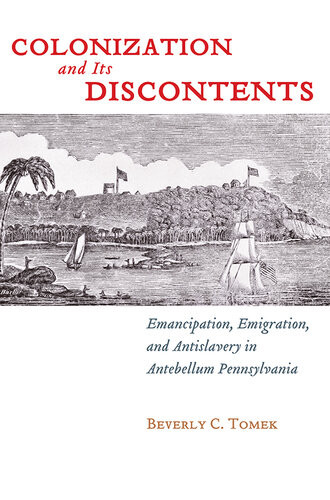

Most ebook files are in PDF format, so you can easily read them using various software such as Foxit Reader or directly on the Google Chrome browser.
Some ebook files are released by publishers in other formats such as .awz, .mobi, .epub, .fb2, etc. You may need to install specific software to read these formats on mobile/PC, such as Calibre.
Please read the tutorial at this link: https://ebookbell.com/faq
We offer FREE conversion to the popular formats you request; however, this may take some time. Therefore, right after payment, please email us, and we will try to provide the service as quickly as possible.
For some exceptional file formats or broken links (if any), please refrain from opening any disputes. Instead, email us first, and we will try to assist within a maximum of 6 hours.
EbookBell Team

4.8
74 reviewsPennsylvania contained the largest concentration of early America’s abolitionist leaders and organizations, making it a necessary and illustrative stage from which to understand how national conversations about the place of free blacks in early America originated and evolved, and, importantly, the role that colonization—supporting the emigration of free and emancipated blacks to Africa—played in national and international antislavery movements. Beverly C. Tomek’s meticulous exploration of the archives of the American Colonization Society, Pennsylvania’s abolitionist societies, and colonizationist leaders (both black and white) enables her to boldly and innovatively demonstrate that, in Philadelphia at least, the American Colonization Society often worked closely with other antislavery groups to further the goals of the abolitionist movement.
In Colonization and Its Discontents, Tomek brings a much-needed examination of the complexity of the colonization movement by describing in depth the difference between those who supported colonization for political and social reasons and those who supported it for religious and humanitarian reasons. Finally, she puts the black perspective on emigration into the broader picture instead of treating black nationalism as an isolated phenomenon and examines its role in influencing the black abolitionist agenda.